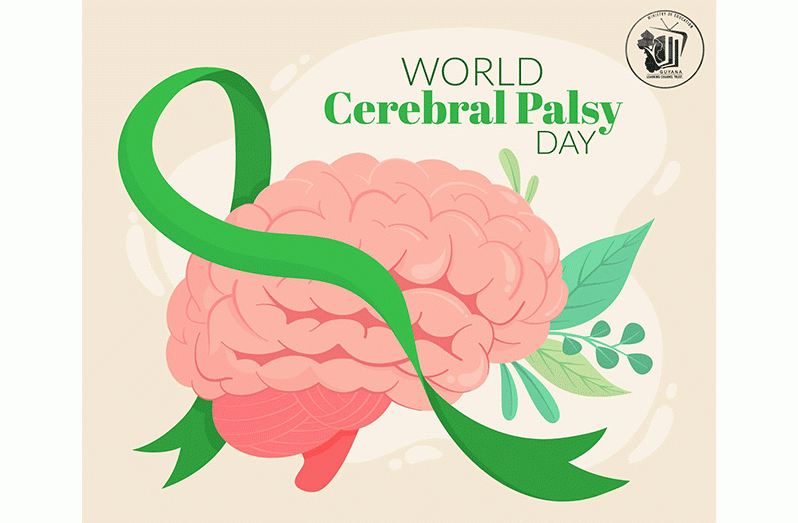IN a dedicated effort to raise awareness about Cerebral Palsy, the Ministry of Health has partnered with the Ptolemy Reid Rehabilitation Centre (PRRC) to engage the public on World Cerebral Palsy Day.
The PRRC, which serves individuals with disabilities, including those with cerebral palsy, offers a range of crucial services.
According to Physiotherapist Simone Seckle, these services primarily encompass physiotherapy, occupational therapy, and speech and language therapy, all designed to address the specific needs and challenges faced by those with cerebral palsy.
The Harold B. Davis Special School, established in 1967 and commissioned in January 2014, has played a vital role in meeting the academic needs of children residing at the centre.
Initially initiated by nursing staff to develop literacy and numeracy skills among the children, the school’s demand grew significantly. Subsequently, the Ministry of Education was approached for a teacher, and this marked the school’s humble beginnings with a single class and one teacher.
World Cerebral Palsy Day 2023, slated for October 6th, carries the theme, ‘Together Stronger.’ This globally recognized event, which was first celebrated on October 6th, 2012, aims to create a world where children and adults with cerebral palsy enjoy equal rights and access to opportunities as everyone else.
The need for a more inclusive world is underscored by the fact that there are over a billion people living with various forms of disabilities, with over 17 million being individuals affected by cerebral palsy.
Despite this significant number, achieving accessibility, inclusivity, and equity remains a challenge for people in these circumstances. Often, product designers and the tech industry overlook the unique needs of individuals with disabilities.
Cerebral Palsy, characterized as a physical disability affecting movements and postures, encompasses a group of disorders impacting a person’s ability to move. It results from damage to the developing brain before, during, or after birth, and its effects can manifest in diverse ways. Cerebral Palsy affects body movements, muscle control, coordination, muscle tone, reflexes, posture, and balance.
Experts noted that while Cerebral Palsy is a permanent condition, some of its symptoms may improve or worsen over time. Individuals with cerebral palsy may also experience visual, learning, hearing, speech, epilepsy, and intellectual impairments.
Approximately 45 percent of children diagnosed with cerebral palsy are born prematurely. For most babies born at term with cerebral palsy, the cause remains unknown. However, only a small percentage of cerebral palsy cases can be attributed to complications during birth, such as asphyxia or oxygen deprivation.
While risk factors alone do not cause cerebral palsy, the presence of certain factors may increase the likelihood of a child being born with the condition. These risk factors include premature birth (less than 37 weeks), low birth weight (small gestational age), clotting disorders (thrombophilia), placental inadequacy in providing oxygen and nutrients to the developing foetus, maternal or foetal bacterial or viral infections affecting the central nervous system, prolonged oxygen deprivation during pregnancy or birth, or severe jaundice shortly after birth.
Individuals with cerebral palsy commonly experience a range of physical and cognitive impairments. One in three may face challenges with walking, while one in four may experience difficulty with speech. An alarming three in four may encounter pain, and one in four may be diagnosed with epilepsy or behavioural issues.
Other potential complications include intellectual disabilities (one in two), severe vision impairment (one in 10), bladder-control problems (one in four), sleep disorders, or difficulties with saliva control (one in five).
World Cerebral Palsy Day serves as a poignant reminder of the importance of understanding and supporting those living with cerebral palsy, striving for inclusivity, and working towards creating a world where everyone can thrive, regardless of their abilities.



.jpg)








